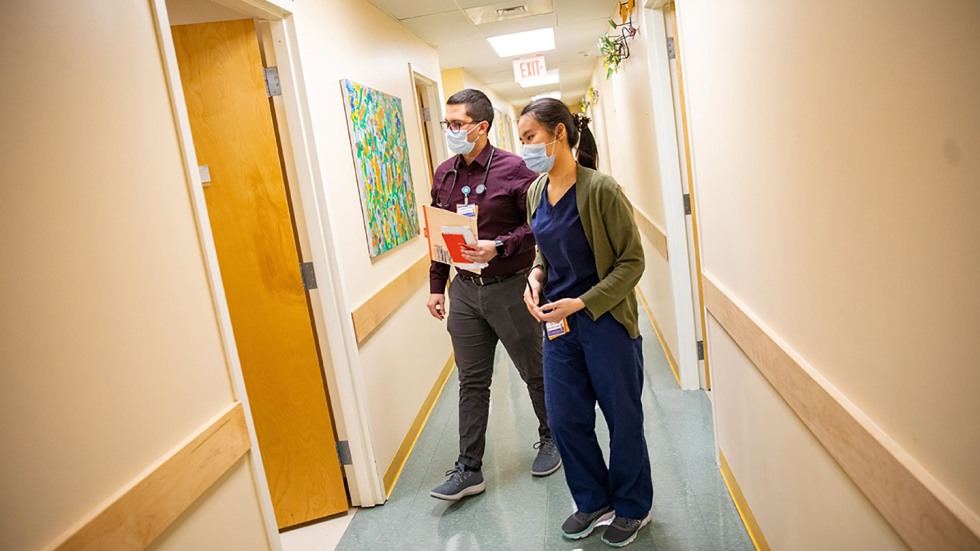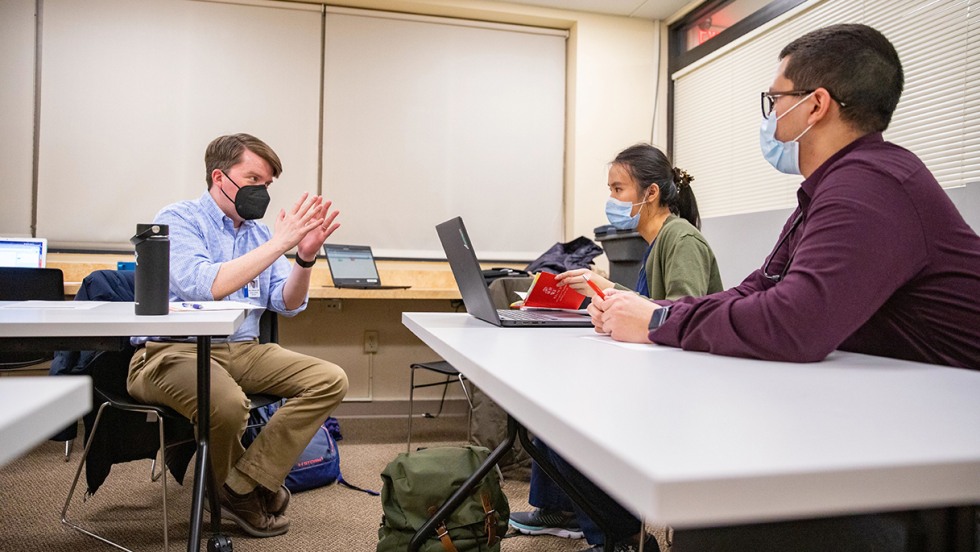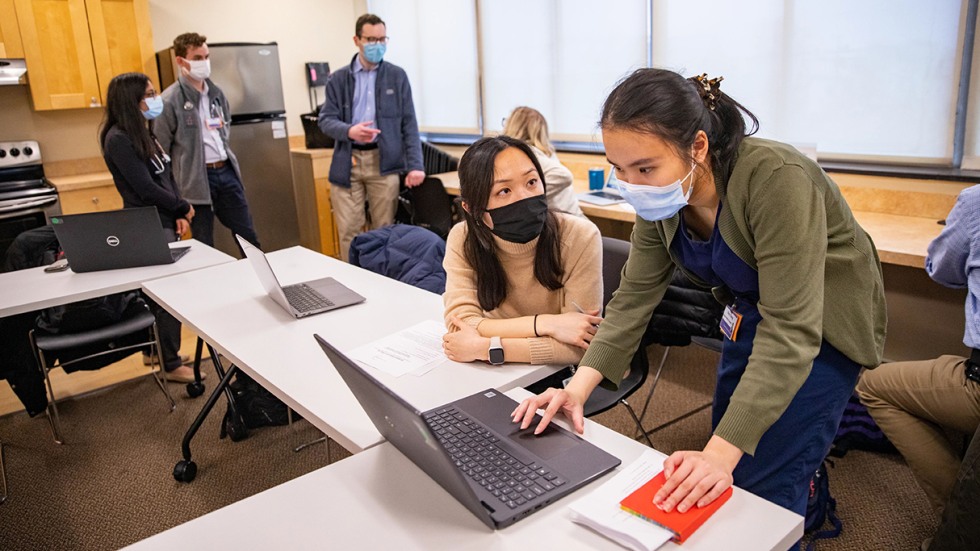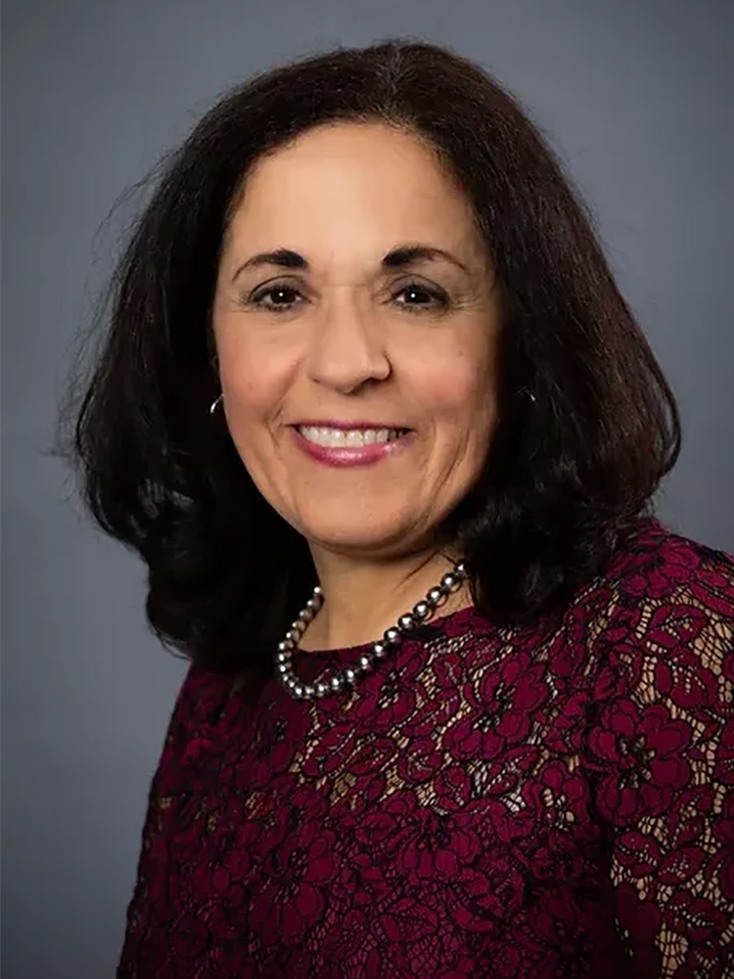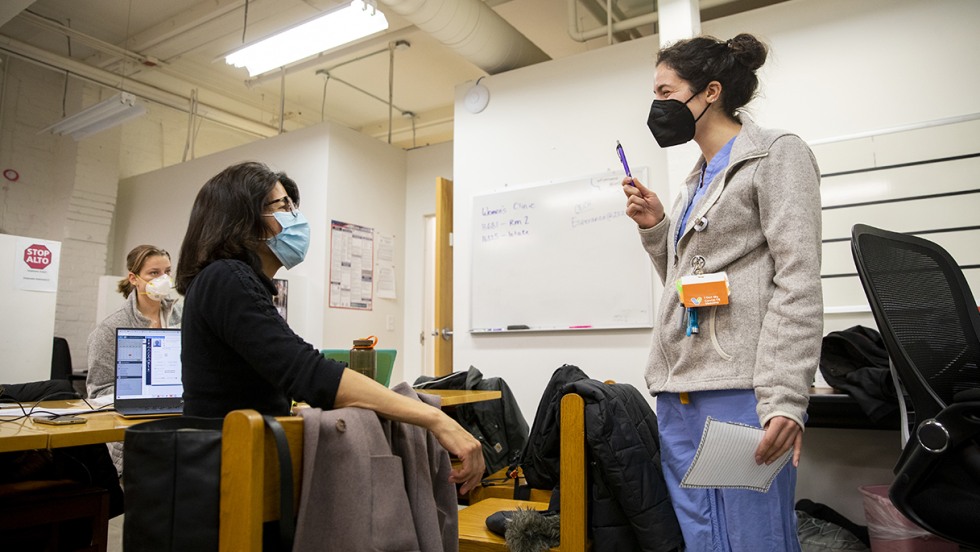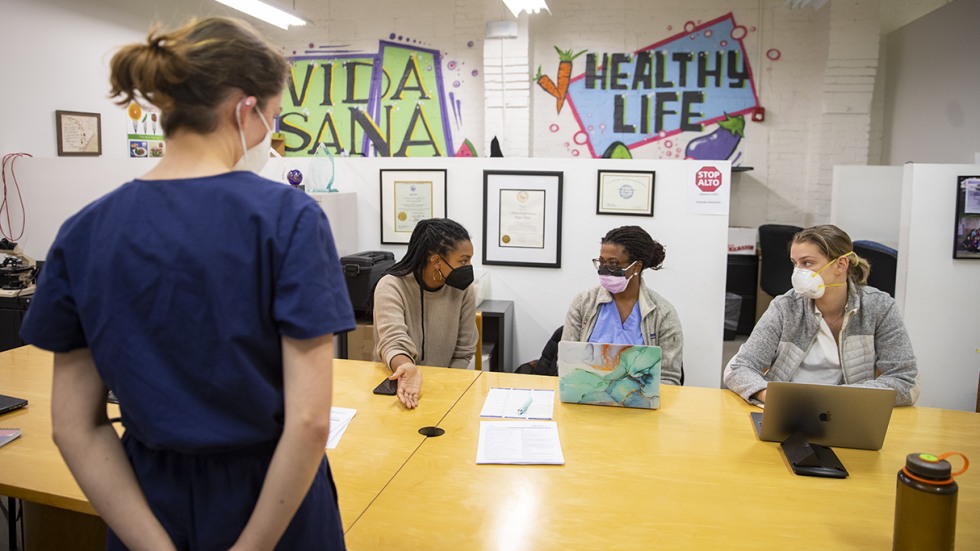PROVIDENCE, R.I. [Brown University] — As a volunteer with Clínica Esperanza in Providence, Ella Satish, a first-year student at Brown University’s Warren Alpert Medical School, was asked to commit to a few hours at least twice a semester. But no measure can truly capture how much time Satish actually spends helping the community health care clinic, which offers free, culturally accustomed and language-specific care to uninsured Rhode Islanders.
Satish first got involved as a Brown undergraduate in 2019. Enrolled in the University’s Program for Liberal Medical Education, she’d decided in high school to pursue a career in medicine. She started by helping to develop a patient education project about the importance of cervical cancer screening. Then, Satish worked at the clinic, doing patient intake, interpreting — 85% of the patients speak Spanish, and the other 15% speak English, Portuguese, Haitian Creole or another language — collecting data and sharing it with staff members.
Now, in addition to interpreting Spanish for patients and physicians, helping to manage operations at the women’s clinic and connecting staff to resources, Satish is the clinic’s first quality improvement and advocacy coordinator. She solicits patient input on ideas to improve women’s clinic care, then helps to implement them. In the role, Satish is partnering with a fellow Brown student to launch an education program about sexual and reproductive health, with the goal of empowering patients to make informed decisions about contraception, fertility and family planning, STI prevention and more.
